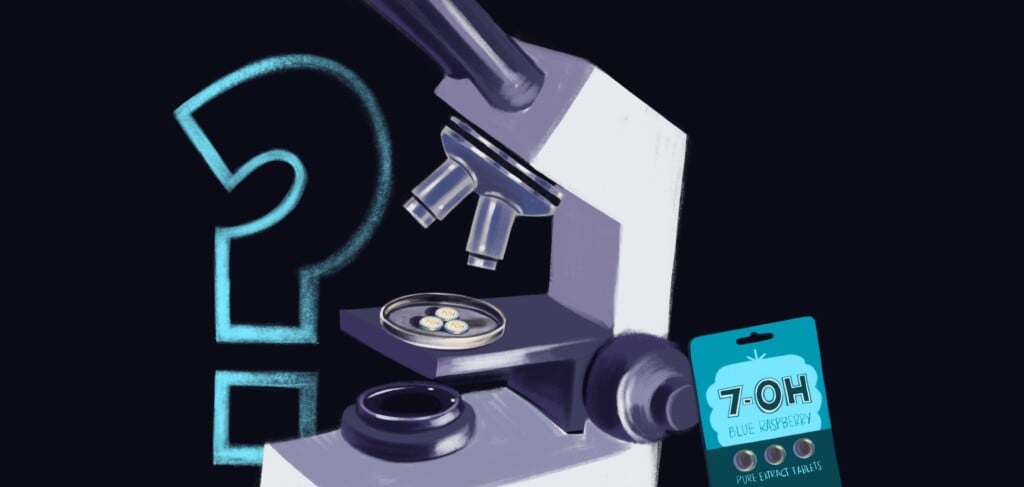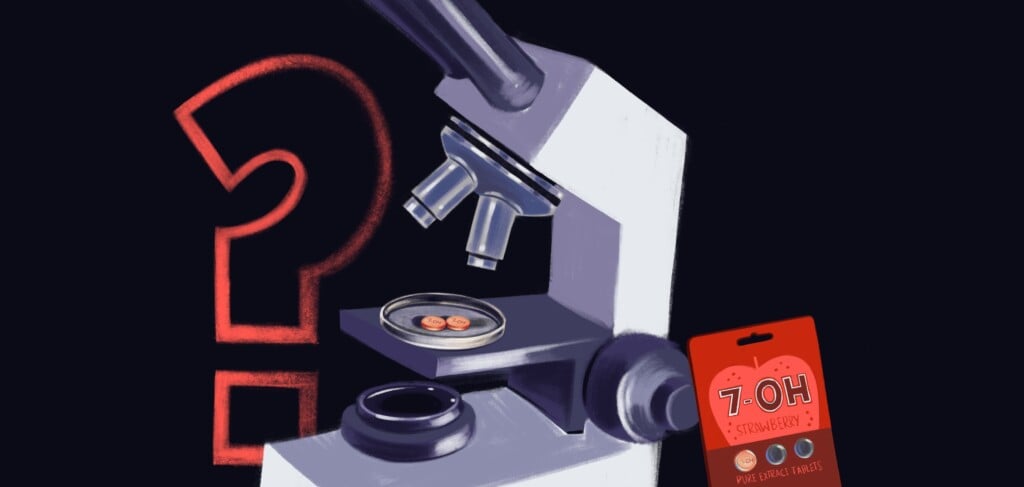Smoke Show: Stripping Shelves
Last month, Gov. Parson banned unregulated psychoactive cannabis products in Missouri, so what's next?
Update: On Aug. 21, Secretary of State Jay Ashcroft refused to sign off on the emergency rulemaking process of Parson’s Executive Order 24-10, according to a press release from the Missouri Governor’s website. If Ashcroft does not choose to reverse his decision, the executive order could be delayed up to six to eight months.
On Aug. 1, Governor Mike Parson held a press conference at the state capitol in Jefferson City, where he reported that he had issued Executive Order 24-10, prohibiting the sale of any food that contains unregulated psychoactive cannabis compounds—what many know as different delta products. On top of the ban on these different food products, the executive order also prohibits any retail businesses that hold a liquor license from selling any psychoactive cannabis compounds.
The Missouri Department of Health and Senior Services (DHSS) is in charge of embargoing these products throughout the state, as the ban goes into effect on Sept. 1.
“The Division of Alcohol and Tobacco Control has jurisdiction over about 17,000 locations with liquor licenses across the state, and our team stands ready to enforce regulations to protect against these unregulated psychoactive cannabis products in these locations,” Division of Alcohol and Tobacco Control State Supervisor Mike Leara said at the press conference. “We have a long history of regulating intoxicating products, including related to ingredients, origin, labeling and age restrictions, and will bring this experience to this critical issue.”
Along with Leara, Attorney General Andrew Bailey, DHSS Director Paula Nickelson, and Department of Public Safety Director Sandy Karsten joined Parson to speak at the conference, providing their opinions on unregulated hemp-derived products and the ban itself.
Parson’s executive order comes about five months after the Missouri Department of Health and Senior Services (DHSS) released a white paper that outlined the dangers that these unregulated products pose to Missouri consumers, specifically children, which The Pitch covered in April. According to a press release on Governor Parson’s website, his choice to ban these products stems from “a recent increase in availability of products containing psychoactive cannabis and the emerging concerns regarding the health effects of these substances, especially among Missouri’s youth.”
The release also states that, since 2018, there has been a 600% increase in children five or younger who have experienced cannabis poisoning, resulting in ER trips. Along with that, the release states that children 12 or younger make up 41% of delta eight exposures, according to America’s Poison Control Center 2022 report of the national poison data system.
As of right now, hospitalizations due to cannabis poisoning cannot be accurately credited to regulated or unregulated cannabis products, according to DHSS Division of Cannabis Director Amy Moore.
“What I’ve been told is that it’s just not tracked that way,” Moore says. “There are efforts in communication and education system issues and trying to get that remedy. So the question will be asked, if this was a product that was purchased in a licensed dispensary, or if it was a product purchased anywhere else, and that would be a way to track that.”
Relying on word-of-mouth from a minor who has suffered a trip to the ER due to an intoxicating substance is not a reliable or accurate method when dealing with such a serious concern. Ultimately, this lack of knowledge makes it extremely challenging for officials and authoritative figures to pinpoint if these hospitalizations are emerging from the local smoke shop’s product, or from a licensed dispensary.
Although there is no way for health professionals to figure out where the patient may have received the product, it is important to note that there is a security and identity process that individuals must undergo before stepping foot in a Missouri dispensary, while there is no sort of structure or regulation to obtain hemp-derived products from non-licensed retailers, other than those voluntarily instituted by some local smoke shops.
“From our standpoint, as the regulating agency, we just want to make sure that we’re doing everything we can to mitigate these kinds of risks, so we have some pretty extensive rules on packaging that have been appealing to children—child safety mechanisms on the packaging, and those kinds of measures are in place to try to ensure that the regulated market isn’t contributing to the issue,” Moore says.
“Without a regulatory body over the other market, there’s no one doing the same for that market,” Moore adds.
The DHSS has the authority to regulate the cannabis market in the state, in an attempt to ensure that Show-Me state consumers are obtaining safe substances. According to Moore, there are around 150 employees within the DHSS Division of Cannabis, spread out among multiple sectors of regulatory teams, monitoring the licensed cannabis facilities in the state.
“We can do that through monitoring and analyzing the track and trade data that we have, we can do that through investigating complaints or through our own inspections. There’s not a set schedule for those, but all of our facilities have physical inspections going on, I’d say, at least once a year,” Moore says.
On top of the inspections, Moore’s division has 24/7 camera access to monitor every licensed cannabis facility within the state, allowing them to conduct remote inspections at any time, and take action if needed.
“I’m not sure that health officials are able to differentiate when it comes to statistics, but what we do know is that one of these products is not available to children,” Missouri Cannabis Trade Association Spokesperson Jack Cardetti says. “They can’t legally purchase it, they can’t legally possess it. Whereas the unregulated hemp products that we’re talking about can be legally bought by children today in Missouri and can be possessed by children. And that’s obviously what’s hugely worrisome.”
In addition to the lax security, Parson, along with many other authoritative figures within the state, believe that these delta products are marketed in a manipulative manner that increases the risk of children being more susceptible to consuming the substance. At the press conference, Parson provided examples of packages containing psychoactive cannabis compounds that replicate popular candy brands such as Mike and Ike, Airheads, and LIFE SAVERS.
“So many of these products look exactly like candies, and, quite frankly, they’re made to look like that,” Cardetti says. “These unscrupulous actors are actively marketing these to children, and that’s, I think, some of the really concerning issues. So, we’re glad that state officials followed the lead of law enforcement cracking down on these products.”
Executive Order 24-10 is now beginning to hit different retail distributors across the state, in an attempt to sweep the shelves of various delta products and taking a toll on the businesses that were raking in profits. It will be important to keep a steady eye on the pace of further cannabis poisonings resulting in hospitalizations, specifically minors, to truly know whether this ban is having an uplifting effect on the metro, and state as a whole.
Although Missouri has now taken its stance on these specific substances, they remain legal right across the state line. It will be interesting to see how Kansas favors this unregulated market, now that Parson sees no good for the products in the state of Missouri.
Clearly, this executive order is going to affect small business owners and producers from all walks of life. We’re preparing our follow-up story on how this changes life for Missourians on the ground. Want to weight in? Contact joe@thepitchkc.com






